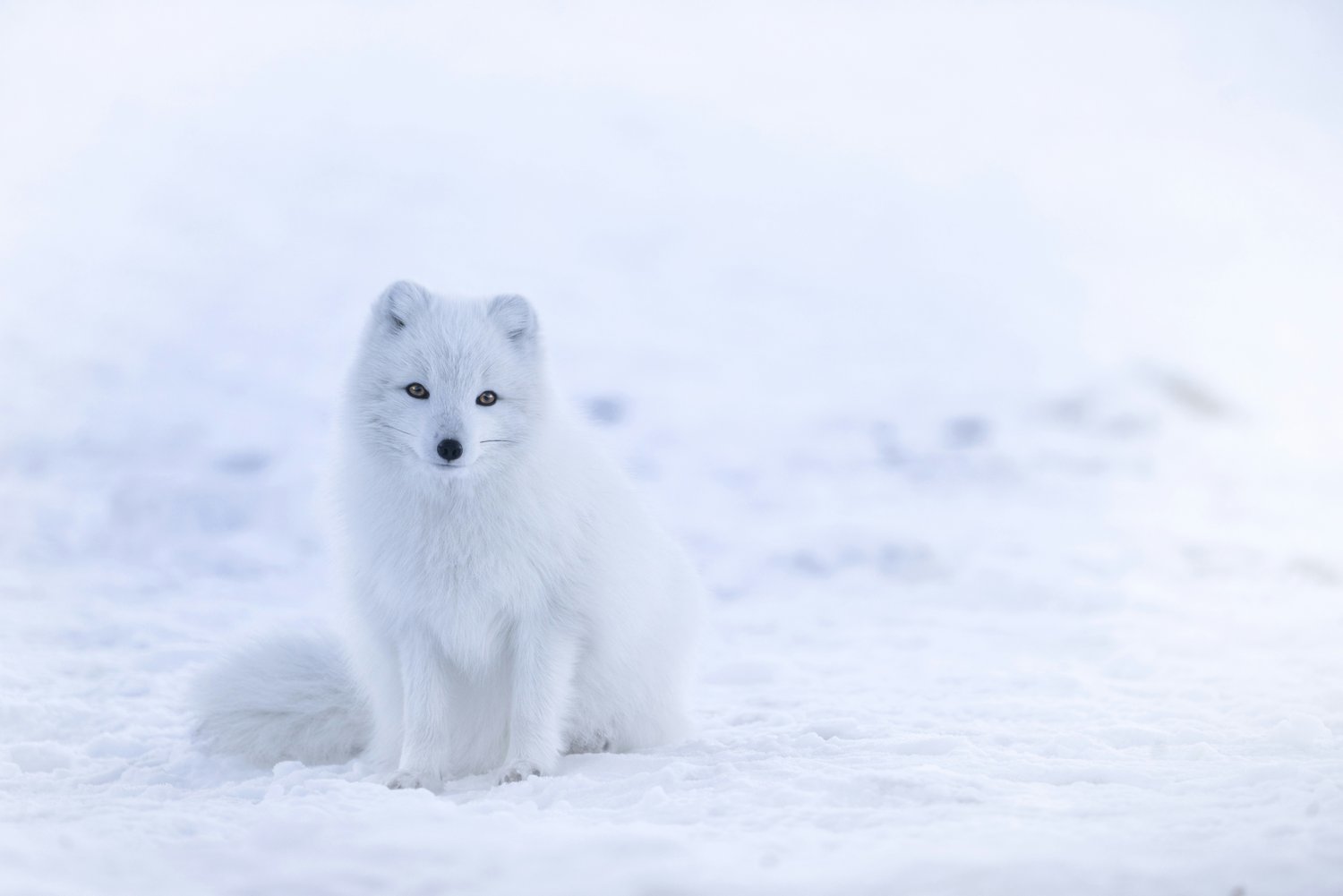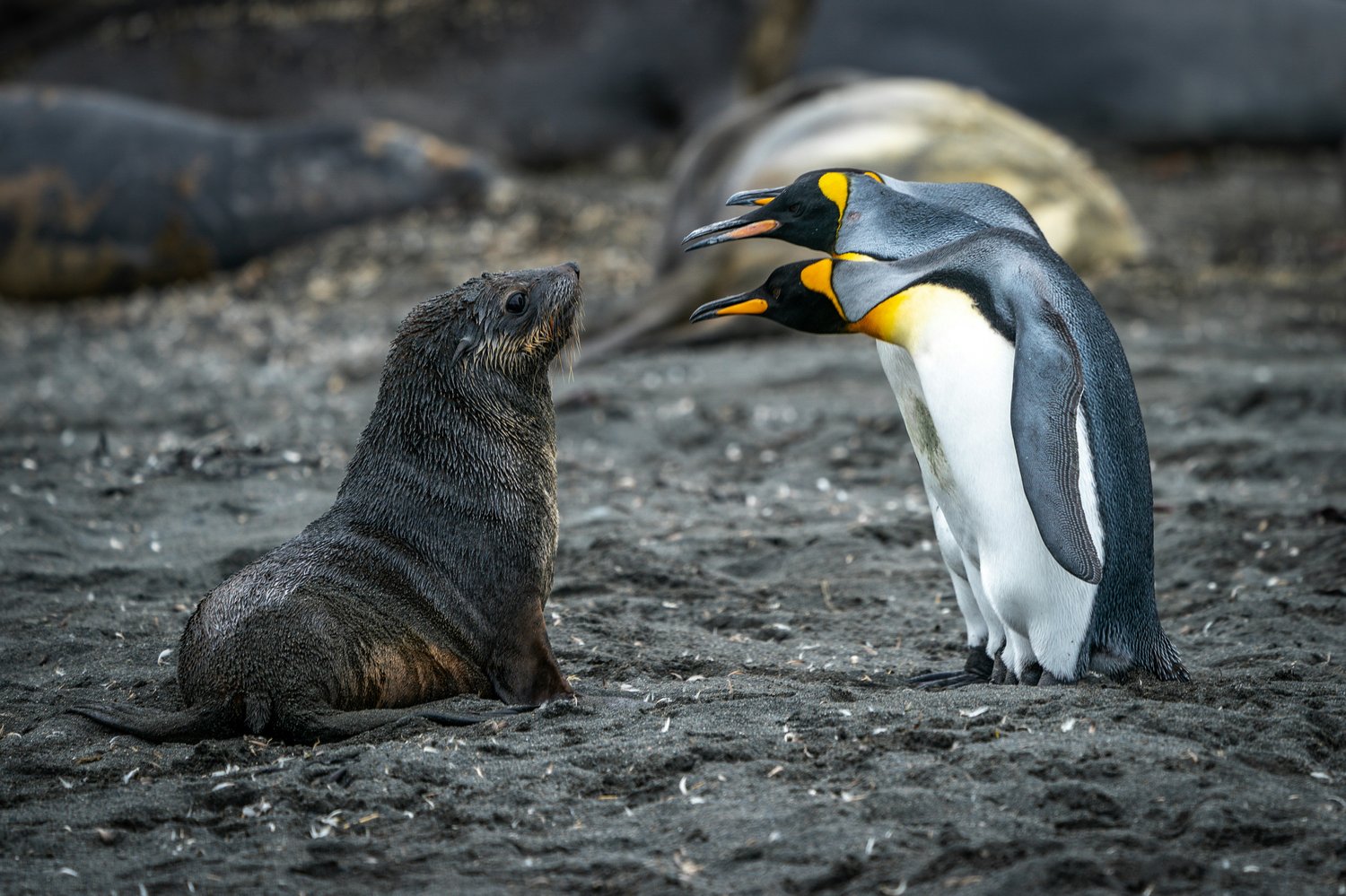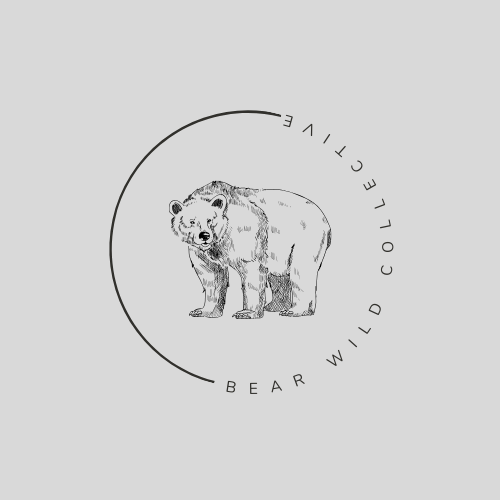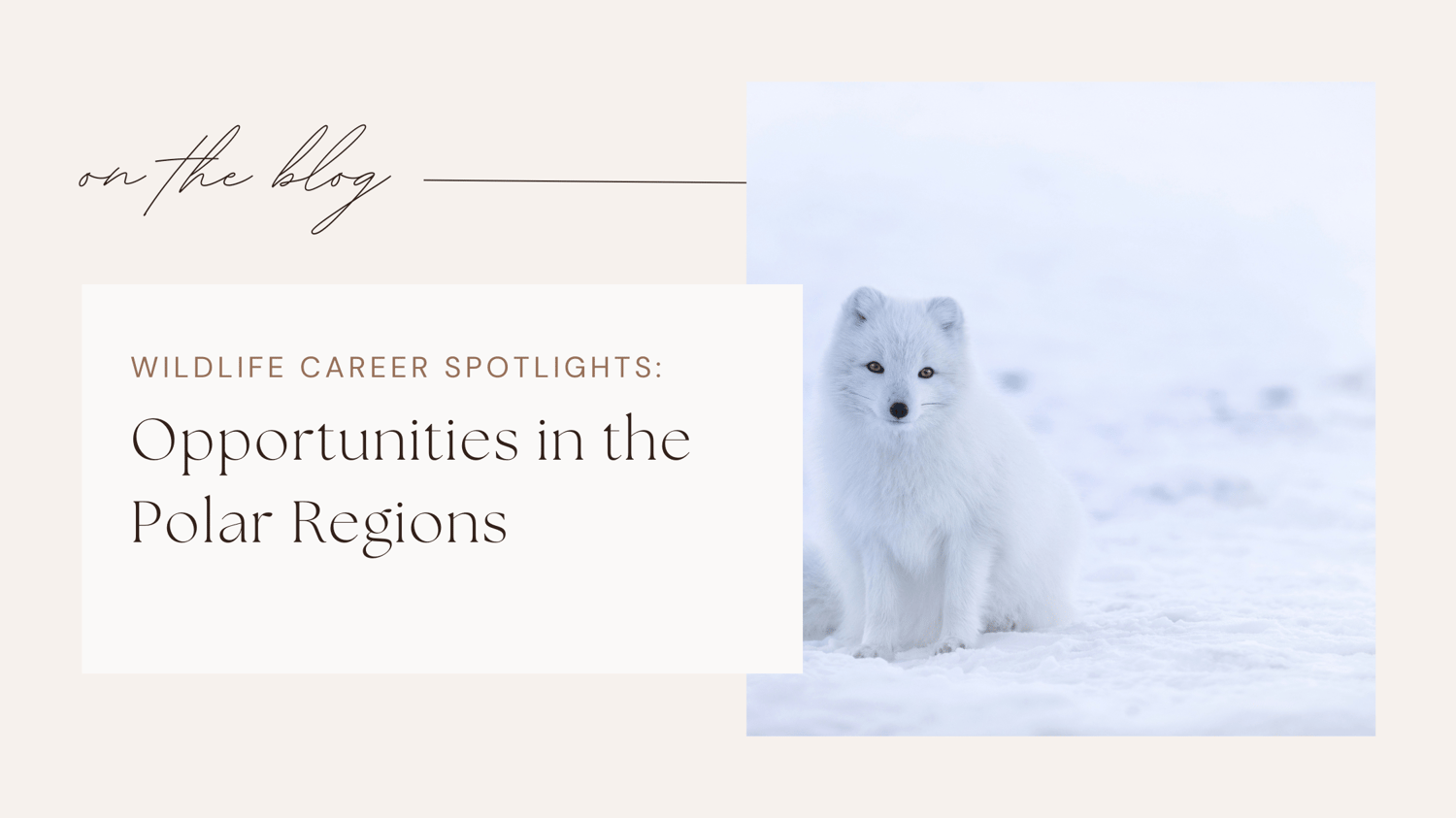The Arctic and the Antarctic, two of the most remote and harshest environments on Earth, are home to a unique set of species adapted to extreme cold and long periods of darkness. However, as climate change rapidly impacts the region, the polar regions are facing significant challenges, including habitat loss, species endangerment, and shifts in ecosystems. For those interested in conservation and wildlife protection, the polar regions present exciting and urgent career opportunities.
Read more about unique roles in the wildlife sector in our Wildlife Career Accelerator or Wildlife Work Directory

[Credit Jonaton Pie]
Ecologist
Polar ecologists study the relationships between species and their environment in the Arctic and Antarctic, focusing on how ecosystems function in extreme conditions. They research how organisms, from polar plants to polar bears, adapt to the cold, as well as how climate change is altering these habitats. Ecologists may work with environmental organisations, government agencies, and universities to monitor ecosystem changes and assess the impact of warming temperatures, which are melting sea ice and threatening biodiversity. They often conduct fieldwork in remote regions, collecting data on wildlife populations and environmental conditions.
Wildlife Biologist
Wildlife biologists in these regions focus on studying the behavior, biology, and population dynamics of polar species, including polar bears, Arctic foxes, seals, whales, and migratory birds. These biologists monitor species health, track populations, and assess the impacts of human activities such as oil exploration and tourism. Field research is a major component of this role, and biologists often work in partnership with conservation organisations, local governments, and international wildlife agencies. These professionals may also be involved in breeding programs, habitat restoration, anti-poaching initiatives, or capturing and tagging wild animals.

[Credit Rod Long]
Marine Biologist
The Arctic Ocean is home to some of the world’s most important marine ecosystems. Marine biologists in the Arctic study marine species such as whales, seals, walruses, and fish. They research the effects of melting sea ice on marine ecosystems and the migration patterns of marine mammals. Due to the sensitive nature of Arctic marine environments, these biologists are involved in tracking the health of marine populations, developing conservation plans, and conducting environmental impact assessments for industries operating in the region, such as shipping and oil drilling.
Conservation Policy Specialist
Conservation policy specialists work on legislation and policy initiatives that protect polar wildlife and habitats. These professionals are responsible for advocating for stronger environmental protection laws, managing protected areas, and ensuring that international agreements such as the Arctic Council’s framework are upheld. They collaborate with governments, NGOs, and indigenous communities to develop policies that address the impacts of climate change, pollution, and industrial activities on polar ecosystems. Policy specialists are key players in shaping the future of wildlife protection in the Arctic and Antarctic.
Climate Change Researcher
As the polar regions are warming faster than any other region on Earth, climate change researchers play an important role in understanding its effects on wildlife and ecosystems. Researchers may work with institutions like NASA, NOAA, or international environmental organisations to study how shifting temperatures, ice melt, and altered migration patterns are impacting polar species. Climate change researchers also develop models to predict future changes and help shape conservation strategies. Many of these roles involve field research and data collection in harsh conditions.
Key Organisations
Several global and regional organisations are dedicated to preserving these environments and their wildlife. These organisations offer various career opportunities in wildlife research, policy, and conservation:
- WWF Arctic Programme: WWF works to protect Arctic species and ecosystems through research, policy advocacy, and conservation initiatives aimed at mitigating climate change and reducing human impact.
- The Arctic Council: This intergovernmental forum addresses Arctic issues, including environmental protection and sustainable development, and provides opportunities for professionals working on international conservation policies.
- Polar Bears International: This nonprofit organisation focuses specifically on polar bear conservation, studying their behavior, habitats, and survival in the face of climate change.
- Greenpeace Arctic Campaign: Greenpeace actively works on Arctic conservation, focusing on protecting the region from oil drilling, mining, and overfishing while promoting sustainable practices.
Wildlife careers in the polar regions are diverse and essential to the conservation of this fragile region. From field researchers and marine biologists to policy experts and conservationists, professionals in these areas are working to protect their unique species and ecosystems in the face of rapidly changing conditions. Organisations like WWF, the Arctic Council, and Polar Bears International offer a range of opportunities for those passionate about preserving biodiversity. As the Arctic and Antarctic continue to face significant environmental challenges, the need for skilled professionals in wildlife conservation will only grow.



